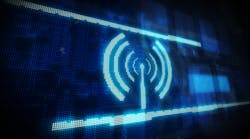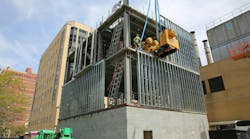The Federal Communications Commission plans a $718,000 fine against M.C. Dean for blocking consumers’ Wi-Fi connections at the Baltimore Convention Center. The FCC’s Enforcement Bureau investigation found that M.C. Dean, Inc., one of the nation’s largest electrical contracting companies, blocked personal mobile “hotspots” of convention visitors and exhibitors who tried to use their own data plans to connect to the Internet rather than paying M.C. Dean substantial fees to use the company’s Wi-Fi service.
“Consumers are tired of being taken advantage of by hotels and convention centers that block their personal Wi-Fi connections,” said Travis LeBlanc, Chief of the FCC’s Enforcement Bureau. “This disturbing practice must come to an end. It is patently unlawful for any company to maliciously block FCC-approved Wi-Fi connections.”
As the exclusive provider of Wi-Fi access at the Baltimore Convention Center, M.C. Dean charges exhibitors and visitors as much as $1,095 per event for Wi-Fi access. Last year, the Commission received a complaint from a company that provides equipment that enables users to establish hotspots at conventions and trade shows. The complainant alleged that M.C. Dean blocked hotspots its customers had tried to establish at the Baltimore Convention Center. After receiving the complaint, Enforcement Bureau field agents visited the venue on multiple occasions and confirmed that Wi-Fi blocking activity was taking place.
The Enforcement Bureau’s investigation found that M.C. Dean engaged in Wi-Fi blocking at the Baltimore Convention Center on dozens of occasions in the last year. During the investigation, M.C. Dean revealed that it used the “Auto Block Mode” on its Wi-Fi system to block consumer-created Wi-Fi hotspots at the venue. The Wi-Fi system’s manual describes this mode as “shoot first, and ask questions later.” M.C. Dean’s Wi-Fi blocking activity also appears to have blocked Wi-Fi hotspots located outside of the venue, including passing vehicles. The Commission today charges M.C. Dean with violating Section 333 of the Communications Act by maliciously interfering with or causing interference to lawful Wi-Fi hotspots.
This is the FCC’s third major enforcement action regarding Wi-Fi blocking. In October 2014, the FCC fined Marriott International, Inc. and Marriott Hotel Services, Inc. $600,000 for similar Wi-Fi blocking activities at the Gaylord Opryland Hotel and Convention Center in Nashville, Tennessee. In August 2015, the FCC fined Smart City Holdings, LLC $750,000 for similar Wi-Fi blocking at multiple convention centers across the country.



